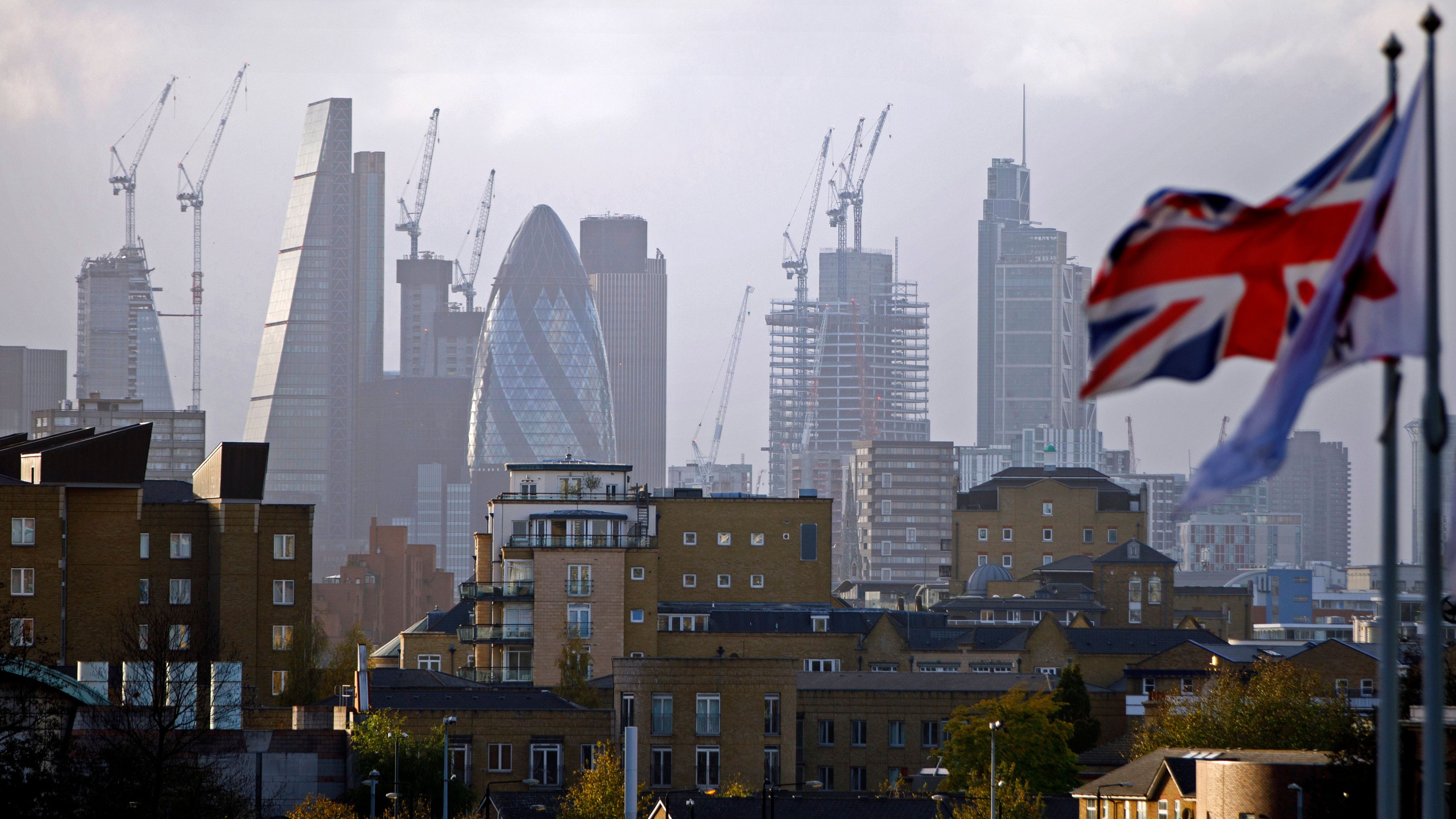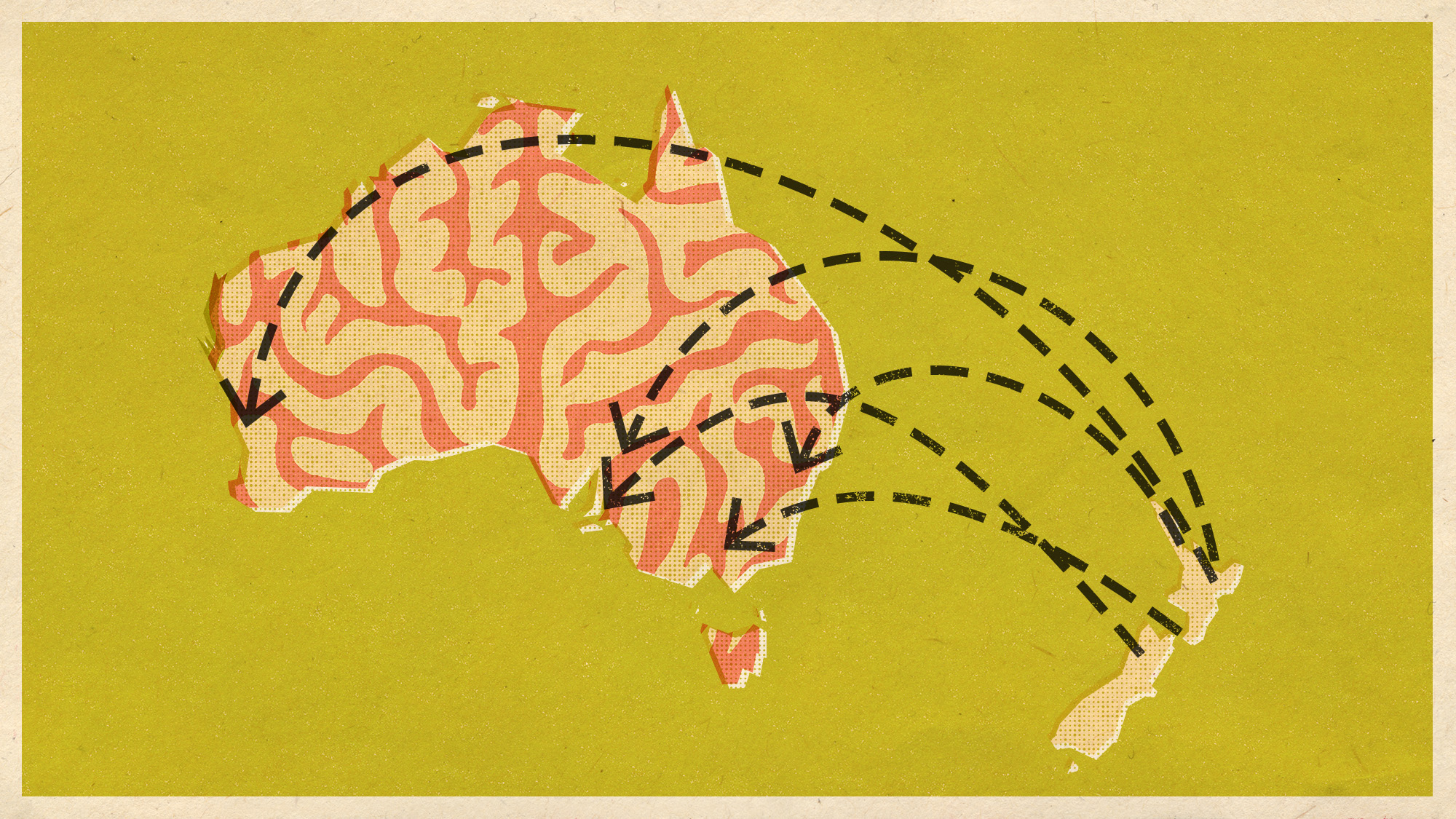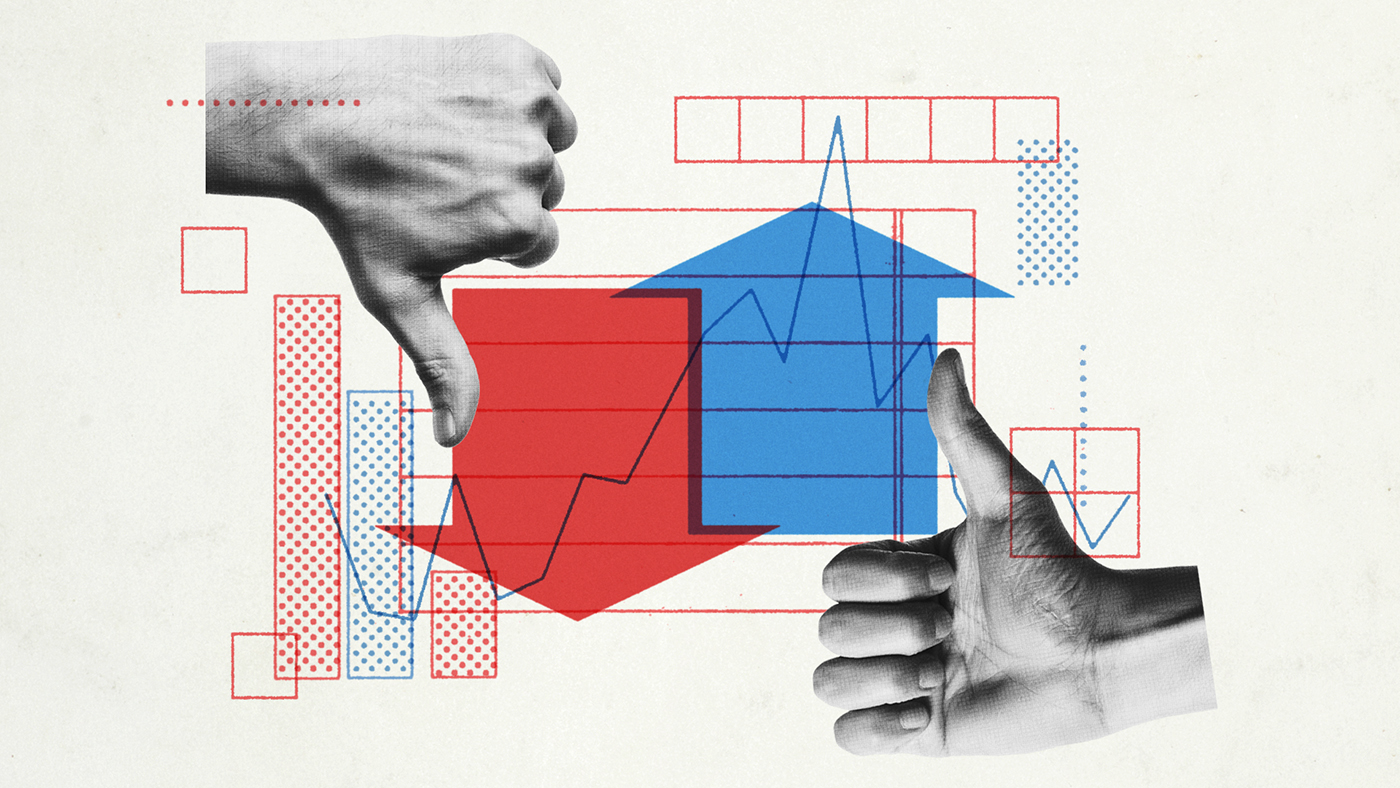Reaction: UK economy ‘could shrink by 35%’ by June due to coronavirus
Office for Budget Responsibility’s warning is considered too optimistic by several analysts

A free daily email with the biggest news stories of the day – and the best features from TheWeek.com
You are now subscribed
Your newsletter sign-up was successful
The coronavirus pandemic could cause the UK economy to shrink by a record 35% by June, according to the independent tax and spending watchdog.
The Office for Budget Responsibility said that its projection was based on an assumption that the current lockdown would last for three months.
The Guardian described the forecast as “extremely grim” but several commentators felt that it was not pessimistic enough.
The Week
Escape your echo chamber. Get the facts behind the news, plus analysis from multiple perspectives.

Sign up for The Week's Free Newsletters
From our morning news briefing to a weekly Good News Newsletter, get the best of The Week delivered directly to your inbox.
From our morning news briefing to a weekly Good News Newsletter, get the best of The Week delivered directly to your inbox.
Chris Giles of the Financial Times tweeted that the OBR’s scenario “assumes no scarring at all” and argued that this “assumption” will not “last the test of time”.
Reuters’ Andy Bruce was also sceptical, arguing that the OBR is “assuming the economy returns to normal next year”. He added that he can “think of a few economists who are sceptical about that!”
Torsten Bell of the Resolution Foundation think tank also warned that things could get even worse.
“Policymakers should recognise that these forecasts represent just one scenario for a three month lockdown. History shows that measures to control a pandemic can in fact last much longer,” he told The Independent.
A free daily email with the biggest news stories of the day – and the best features from TheWeek.com
–––––––––––––––––––––––––––––––For a round-up of the most important stories from around the world - and a concise, refreshing and balanced take on the week’s news agenda - try The Week magazine. Start your trial subscription today –––––––––––––––––––––––––––––––
Responding to the data, Labour’s shadow chancellor, Anneliese Dodds, said: “It is absolutely critical that government now does all it can to minimise the depth and length of the economic impact from necessary anti-Coronavirus measures.”
Paul Johnson, director of the Institute for Fiscal Studies, told Sky News: “Tough decisions will have to be made which are likely to involve tax rises and higher debt for some time to come. The only other alternative would be another period of austerity on the spending side. That looks unlikely.”
The OBR has resurrected debate over how soon to lift the lockdown restrictions by forecasting that each additional month of tight controls on economic and social activity would cost the Treasury up to £45bn of additional borrowing.
However, points out the BBC’s economics editor Faisal Islam, “if the lockdown is lifted prematurely, the health system could fall over, workers might just refuse to go to work anyway, and none of that would be positive for the economy”.
-
 6 exquisite homes with vast acreage
6 exquisite homes with vast acreageFeature Featuring an off-the-grid contemporary home in New Mexico and lakefront farmhouse in Massachusetts
-
 Film reviews: ‘Wuthering Heights,’ ‘Good Luck, Have Fun, Don’t Die,’ and ‘Sirat’
Film reviews: ‘Wuthering Heights,’ ‘Good Luck, Have Fun, Don’t Die,’ and ‘Sirat’Feature An inconvenient love torments a would-be couple, a gonzo time traveler seeks to save humanity from AI, and a father’s desperate search goes deeply sideways
-
 Political cartoons for February 16
Political cartoons for February 16Cartoons Monday’s political cartoons include President's Day, a valentine from the Epstein files, and more
-
 What's Jeff Bezos' net worth?
What's Jeff Bezos' net worth?In Depth The Amazon tycoon and third richest person in the world made his fortune pioneering online retail
-
 'Brain drain' fear as record numbers leave New Zealand
'Brain drain' fear as record numbers leave New ZealandUnder The Radar Neighbouring Australia is luring young workers with prospect of better jobs
-
 Ghost kitchens are pulling a disappearing act
Ghost kitchens are pulling a disappearing actunder the radar The delivery-only trend is failing to live up to the hype built up during the pandemic
-
 The birth of the weekend: how workers won two days off
The birth of the weekend: how workers won two days offThe Explainer Since the 1960s, there has been talk of a four-day-week, and post-pandemic work patterns have strengthened those calls
-
 Why household wealth took off during the pandemic
Why household wealth took off during the pandemicUnder The Radar The Covid-19 pandemic caused a lot of pain and hardship, but new research shows it also left most Americans wealthier
-
 Empty office buildings are blank slates to improve cities
Empty office buildings are blank slates to improve citiesSpeed Read The pandemic kept people home and now city buildings are vacant
-
 Inflation vs. deflation: which is worse for national economies?
Inflation vs. deflation: which is worse for national economies?Today's Big Question Lower prices may be good news for households but prolonged deflation is ‘terrible for the economy’
-
 America's 'cataclysmic' drop in college enrollment
America's 'cataclysmic' drop in college enrollmentToday's Big Question "The slide in the college-going rate since 2018 is the steepest on record"